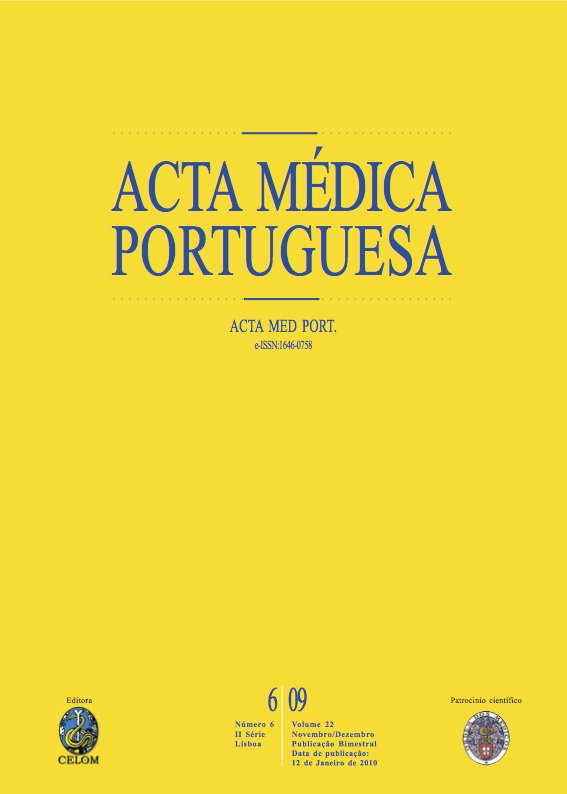The premedical syndrome: does it exist in Portugal?.
DOI:
https://doi.org/10.20344/amp.1731Abstract
In Portugal, the medical school selection process relies exclusively on past academic results, involving the most stringent criteria of all courses, with no attention given to the personality traits of the students. In a competitive context, perfectionism dimensions may be relevant to consider. Socially Prescribed Perfectionism (SPP) has been correlated with Neuroticism, while Self-Oriented Perfectionism (SOP) is strongly associated with Conscientiousness. These domains of personality have been linked (lower levels of Neuroticism and higher levels of Conscientiousness) to academic and professional success in Medicine. The premedical syndrome describes premedical students as overachieving, excessively competitive, cynical, dehumanized, overspecialized and narrow. Our main objective was to compare SPP and SOP levels between Medical and Humanities students, as they may be possible indicators of the premedical syndrome among Portuguese medical students.The Portuguese version of the Multidimensional Perfectionism Scale was administered to 908 undergraduate students from Medicine and Humanities courses of Coimbra University. The sample covered students from the 1st to the 5th year of the courses but most of the students were from the 1st year (n=436).With respect to SPP, significant statistical differences were found, with Medicine students showing lower levels (mean 48.60+/-11.02; p=0.023) than Humanities students (mean 50.00+/-9.56). No significant differences were found in SOP.Our results are reassuring, suggesting the lack of a negative impact of the medical school selection process in the personality traits of the students and the probable absence of the premedical syndrome.Downloads
Downloads
How to Cite
Issue
Section
License
All the articles published in the AMP are open access and comply with the requirements of funding agencies or academic institutions. The AMP is governed by the terms of the Creative Commons ‘Attribution – Non-Commercial Use - (CC-BY-NC)’ license, regarding the use by third parties.
It is the author’s responsibility to obtain approval for the reproduction of figures, tables, etc. from other publications.
Upon acceptance of an article for publication, the authors will be asked to complete the ICMJE “Copyright Liability and Copyright Sharing Statement “(http://www.actamedicaportuguesa.com/info/AMP-NormasPublicacao.pdf) and the “Declaration of Potential Conflicts of Interest” (http:// www.icmje.org/conflicts-of-interest). An e-mail will be sent to the corresponding author to acknowledge receipt of the manuscript.
After publication, the authors are authorised to make their articles available in repositories of their institutions of origin, as long as they always mention where they were published and according to the Creative Commons license.









